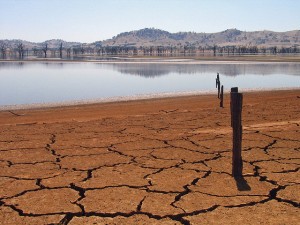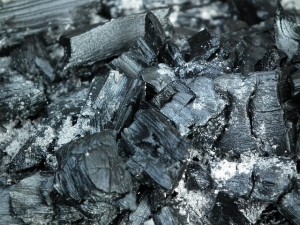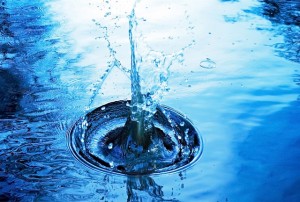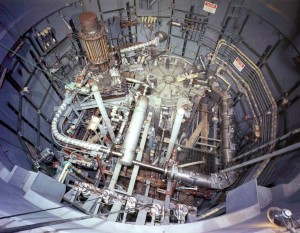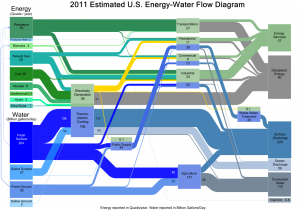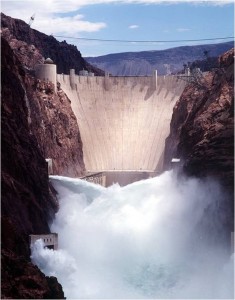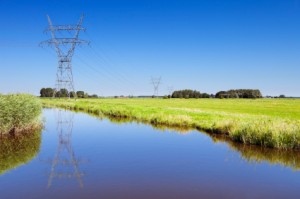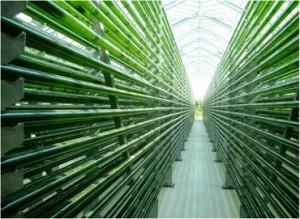8 item(s) were returned.
Dr. Ken Carlson
Colorado State University
Water and energy networks are inextricably linked. Energy production and electricity generation both require water. Conversely, treatment and distribution of water to consumers and wastewater collection and treatment depend on energy. There are multiple other connections between these two fundamental resources and therefore new paradigms are needed for increased usage efficiencies to minimize energy-water conflicts, especially when considering that climate change will significantly impact both. Water has traditionally been abundant in the US, even in drier parts of the country where large, federally funded infrastructure projects have literally made the desert bloom. Energy was also largely readily available so there… [more]
View InsightChair, Energy & Commerce Subcommittee on Environment & Climate Change, U.S. House of Representatives
Co-Chair, Sustainable Energy & Environment Coalition
Recently, House Republicans passed H.R. 1734, the so called Improving Coal Combustion Residuals Regulation Act of 2015, a direct attack on public health and the environment. This bill undermines important health protections in EPA’s final coal ash rule from last December by delaying implementation of coal ash disposal restrictions, letting utilities avoid publicly posting contamination data and allowing companies to continue dumping coal ash into leaking surface impounds for as many as eight years after contamination is documented. It enables harmful substances to remain in contact with aquifers, wetlands, and in seismic impact zones with serious implications for cleanup requirements,… [more]
View InsightFounder and CEO
SMART WATER, SMART CITY LLC
Around the country, a new conversation is emerging among municipal leaders and utility executives as they explore the energy/water nexus. While Senator Murkowski started the discussion at the federal level in 2014, local leaders are just beginning to question the impact of the energy/water nexus. The water/energy nexus deals with the need for water to produce energy, and for energy to treat and distribute clean water. Water infrastructure is an essential public service in any city and is intrinsically linked to energy. Smart technologies and smart strategies for water and energy utilities are needed to address conservation challenges and form… [more]
View InsightPresident
Kadak Associates, Inc.
Today there are 100 nuclear plants operating in the United States, providing roughly 17% of our electricity. They do so with water technology developed in the 1960’s and 1970’s and many of these plants are extending their licenses from 40 to 60 years after careful regulatory review. Even new design nuclear plants such as Westinghouse’s AP-1000 and General Electric’s ESBWR are fundamentally the same technology, which are described as evolutionary. Yet today there are many new innovative designs and technologies that are being developed that are not water based. These innovators face enormous challenges in coming up with new designs… [more]
View InsightDirector of Energy Systems Analysis and Integration
Department of Energy
This prompt is the second in a series of discussions led by invited speakers at the upcoming 15th National Conference and Global Forum on Science, Policy and the Environment: Energy and Climate Change to be held January 27-29, 2015 in Washington, DC. Energy and water systems have historically been designed and managed independently. However, the systems are, in fact, interdependent. In its simplest form, the energy-water nexus can be broken into two parts: “energy for water” —the energy required to treat, transport, or heat water—and “water for energy” —the water required for cooling thermoelectric power plants, oil and gas production,… [more]
View InsightPresident
Clean Energy Development, LLC
Often termed the country’s “silent renewable,” hydropower is the nation’s largest renewable electricity resource, providing 7% of total generation. Hydropower’s many supporters – 81% of U.S. voters favor maintaining existing hydro, according to a recent National Hydropower Association poll – value its low-cost, reliability and ability to integrate intermittent renewable resources. Critics argue that hydropower is not environmentally-friendly and, if included in state Renewable Portfolio Standards, will reduce the growth of renewables like wind and solar power. Historically, the U.S. Army Corps of Engineers and the Bureau of Reclamation built the vast majority of major federal dams with integrated hydroelectric… [more]
View InsightPartner
KL Gates
Energy and water are linked in many ways. Most energy production requires huge amounts of fresh water, while the consumption of water for domestic and agricultural demands uses large amounts of energy. Future water availability, whether from long distance transport or desalination, will require even greater amounts of energy. Water scarcity, especially in the U.S. west of the Mississippi River, as well as in the Southeast, has become a growing source of concern and tension. Consequently, water availability is becoming an important consideration for energy projects in certain regions. The potential for the demand for water to outstrip available supply… [more]
View InsightProponents of algae biofuels have stressed its low environmental impact, reduced greenhouse gas emissions, reduced dependence on foreign oil, and utilization of marginal lands. However, a recent report from the U.S. National Research Council has found that algae biofuels cannot currently be produced on a large scale without using unsustainable amounts of energy, water, and fertilizer – exactly the kinds of impacts algae biofuel production was intended to avoid. Notwithstanding this, the report’s authors do not write off the technology. Jen Stutsman of the Department of Energy said in a statement “[The] report outlines the need for continued research and… [more]
View Insight